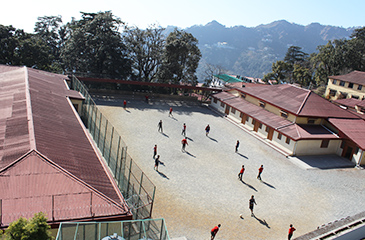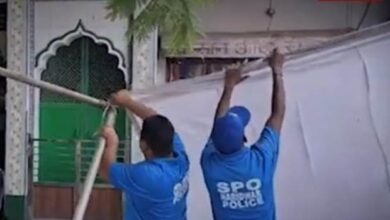Convent of Jesus and Mary School, Hampton Court, Mussoorie evolved successful waste management model

Convent of Jesus and Mary School, Hampton Court, Mussoorie evolved successful waste management model
Mussoorie, Oct 23
The Convent of Jesus and Mary School in Hampton Court, Mussoorie has evolved an exemplary waste management model that has been streamlined to perfection over the past 18 years. The simple model, designed by Vipin Kumar, a former teacher and eminent environmentalist who had done excellent work in waste management particularly in Uttarakhand mountains, has made the school a zero-garbage zone.
The students of all classes learn how to segregate their own classroom waste into two bins: biodegradable and non-biodegradable waste. Additionally, each student from Class IV-X collects solid/dry waste from five homes on a weekly basis, brings it into school and personally segregates the waste in the Waste Management Room of the school. Each day young rag pickers collect all the segregated solid waste from the school and sell it to a central, government-authorised, waste collection site in the town, which has to buy all types of dry waste such as paper, metal, plastic, cloth, glass and also store any ‘non-recyclable’ waste.
Moreover, children in the school are taught how to recycle the wet, biodegradable waste which is used for tree plantation drives around the school. Since children learn about waste management from a very young age they grow up to be adults capable of managing their own waste. This model also greatly helps young rag pickers who are assured of segregated, bulk waste on a daily basis which in turn allows them time to go to school. The young rag pickers or the children of rag pickers are tutored free of cost in the school. This Hampton Court Waste Management Model should be practiced by as many schools across India as possible.
The Centre for Environmental Research & Education (CERE) was established in 2002 by Dr. (Ms.) Rashneh N. Pardiwala, an ecologist from the University of Edinburgh and Mrs. Kitayun Rustom, an environmental educationist. CERE has successfully completed projects in both urban and rural India having worked closely with different government departments, educational institutions, multinational companies and civil society organizations.
The CERE has been documenting successful Models of Environmental Education across India. The United Nations has declared the coming decade (2005-2015) as a ‘Decade of Education for Sustainable Development’. CERE firmly believes that Environmental Education is one subject that cannot and must not be taught from a text book and it is vital to make educational institutions the very grounds where sustainable lifestyles are practiced rather than preached for example, practicing energy conservation, waste management, rainwater harvesting, greening the school/college/educational premises and the neighbourhood, city farming, using renewable energy, using public transport saving resources .






